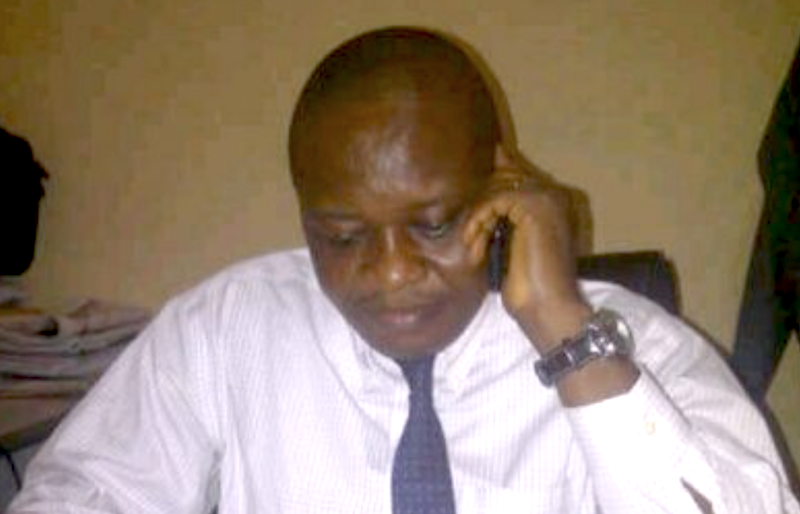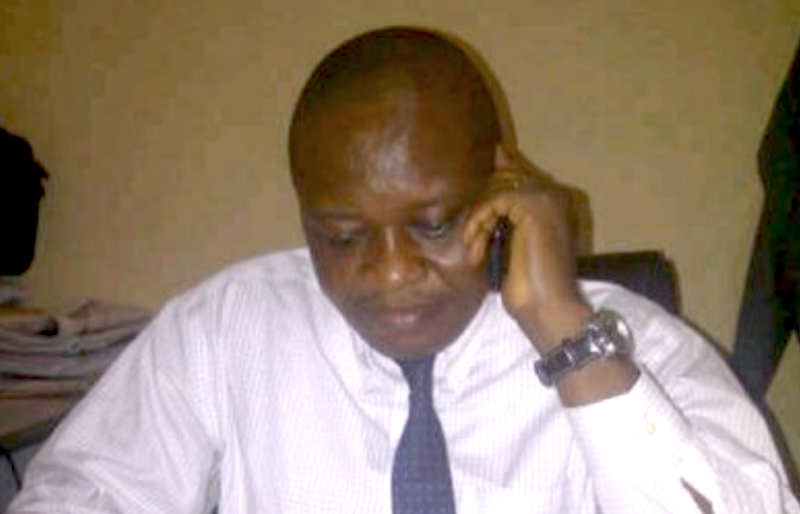More than nine months after 17 soldiers were killed at Okuama during a mission the Army is yet to explain to Nigerians, the revenge operation in the community which left the community completely devastated with the indigenes forced to seek refuge in surrounding forests is festering. Two of the community leaders who were arrested by the military were reported to have to died in army custody after spending months in detention without trial.
Before leaving Okuama community having levelled it to ground zero, Sheriff Oborevwori, governor of Delta State, had on March 18 visited the theatre of operations after previously sympathising with the military over the killing. Unfortunately, the army refused him entry into the village. Despite the disrespect, Oborevwori has at all times been cooperative with the army authorities. He visited the military high command in Abuja to further engage with them on the unfortunate incident. But despite having to deal with the humanitarian tragedy that become the lot of Okuama people who became internally displaced, the task of rebuilding Okuama and resettling its people have been entirely left to him while the army continued its hostile disposition.
President-General of Okuama community development association, Pa James Achovwuko Oghoroko and five other leaders – Prof. Arthur Ekpekpo, Chief Belvis Adogbo, Pa. Dennis Okugbaye, Pa Anthony Ahwemuria, and Mrs Rita Akata – were arrested between August 18 and 20, 2024. It was a brazen move that undermines civil authority and paper over the underlying factors behind the so-called ‘peacekeeping’ mission of the soldiers that unilaterally stormed Okuama on the fateful day without recourse to the local authorities, including the Police and the local government council.This December, Pa James Achovwuko Oghoroko, the elderly president general of the town, passed on while still under military custody.
The army authorities have used the genuine sympathy Nigerians felt for the fallen soldiers to sweep under the carpet the real crisis festering in oiling producing communities from the activities of oil thieves. There are networks of cartels involved in what has become a thriving industry that involves uniformed security operatives ostensibly deployed to curb the ceaseless breaching of the economic lifeline of the country.
In Fisayo Soyombo’s exposé while investigating the prevalent thievery in the harnessing of crude oil, the founder of Foundation for Investigative Journalism (FIJ) revealed what we have always known – that oil thievery cannot be checked because of the high level network of individuals involved in the business.
Speaking on Arise Television after he was briefly arrested alongside oil thieves that was gleefully announced by the military, Soyombo said everything he told his interrogators was revealed to oil thieves within 24 hours.
The carte blanche given the military to handle the investigation into the killing of the 17 servicemen was a grand betrayal of Nigerians. It was a farce. Its unlikely there was any genuine investigation beyond making the Okuama community the expendable pawns. And after two of the community leaders died while still under army custody, it is shocking that President Bola Tinubu is yet to stop the shenanigan going on within the military circle. He has not directed his Attorney-General to intervene and undertake a credible investigation into the saga. After Senator Ovie Omo-Agege called for an independent investigation into the circumstances that led to the death of the Okuama community leaders and Senator Ede Dafinone pleaded with the army to release the other detainees, the army said it would investigate the deaths. Do they really expect to taken seriously with their investigation?
Okuama was not a war zone to make the community active combatants that could be treated as enemy combatants subject to only military jurisdiction. These civilians just got caught in the crossfire between highly placed godfathers of oil thieves. Whatever is the outcome the army’s ‘investigation’ cannot be taken seriously when they have failed to tell Nigerians the nature of ‘peacekeeping’ its personnel got into at Okuama ab intio.
It’s already getting very late for civil authorities to step in and begin a credible investigation into the Okuama saga. If crude oil is said to be a curse, Okuama people are going through the hottest part of hell from the exploitation of the black gold within their land and their willful neglect by the federal government. Tinubu should save the oil producing community who are caught in a crossfire by powerful oil thieves. If the killing of the 17 servicemen is not utilised as an opportunity to restore a measure of sanity among security men deployed to protect oil platforms, sooner than later, another Okuama will happen somewhere else in the Niger Delta and the impoverished indigenes will be caught in the crossfire again.
Postscript
Yakubu’s farcical diatribe on Ghana elections
Unlike his electoral umpire, Mahmoud Yakubu, President Bola Tinubu was effusive in his verdict on the recent Ghana elections where the incumbent government was voted out. While he called on other ECOWAS members countries to draw inspiration from the peaceful and credible conduct of the poll that saw the opposition candidate defeat the sitting vice president, the chairman of Nigeria’s Independent National Electoral Commission (INEC), Mahmoud Yakubu, was unabashedly exultant.
He strangely ascribed the success of the Ghana polls as what he invented to conduct the 2023 general elections in Nigeria that was ‘copied’ by Ghana. His claim bordering on hallucination has left critics wondering what the folks at INEC smoke or drink.
If his tales of phantom technical glitch to explain the failure to declare and upload results right at the polling units as well as the result sheets being mutilated through crude and fraudulent alteration of numbers were not enough, his infamous ‘go to court’ verdict in the dead of the night unravelled him.
In subsequent elections held in some individual states, Yakubu could not redeem himself. In that of Edo State particularly, it all came apart for him. Its difficult to imagine what he was thinking to blurt what he did on the Ghana election.
But we should take solace in what Tinubu said in urging the rest of ECOWAS to study how that country was not only able to conduct a peaceful poll, but also make it credible that the candidate and incumbent Vice President of the government threw in the towel even before the counting of votes was concluded.
Going by his statement, Tinubu wants other countries, including Nigeria, I presume, to study how Ghana did it. But he cannot waste the opportunity by still keeping Yakubu at INEC. Yakubu cannot learn it, if he can, he is incapable of organising credble polls. He had two opportunities in 2019 and 2023, but failed on each occasion.

